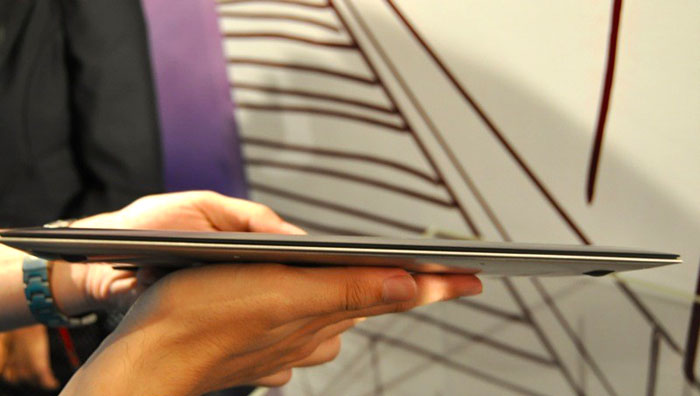With protests demanding end to Mubarak's rule entering the 12th day, people in Tahrir Square prepared to wait him out.
Courtesy of Aljazeera
Demonstrators are still standing their ground in Cairo hours after hundreds of thousands of people gathered to call for Hosni Mubarak, the Egyptian president, to quit.
The protests entered their twelfth day on Saturday, a day after the city's Tahrir Square, the focal point of protests in Egypt, saw demonstrators observe a "Day of Departure".
The morning has been calm so far except for a standoff between two separate groups chanting slogans. However, the military soon moved in and there are more soldiers on the ground now.
One of Al Jazeera's correspondents in Cairo said there are about 10,000 people in Tahrir Square and queues of people trying to get in.
"There is very tight security today [Saturday] because there have been all sorts of unconfirmed rumours of bombs being planted in different areas, which has caused a bit of panic," she said.
Another of our correspondents reported that soldiers had formed a line inside the square, around 100 metres beyond the museum barricade, and are separating the protesters inside the square from those manning the barricade.
"If I had to guess, I'd say the plan is to limit the number of protesters who can get to the museum barricade and then disassemble it, so that the army can regain control of that entrance," he said.
"It looked like there might've been some altercation there; protesters were hopping over the barricades to the outside. They've now formed their own human chain, facing outward, along the exterior of the barricade."
Meanwhile, state media reported that Mubarak met ministers responsible for the main economic portfolios in his new government on Saturday.
The meeting included the prime minister, finance minister, oil minister and the trade and industry minister. The central bank governor also attended.
Earlier on Friday, Egypt's prosecutor-general had barred Rashid Mohammed Rashid, the former trade and industry minister, from leaving the country, and had frozen his bank accounts.
The same measures was also taken against Habib al-Adly, the former interior minister, and Ahmed Ezz, a businessman.
'Death or freedom'
The demonstrations, which commenced after Friday prayers, were also held in the cities of Alexandria, Mahalla and Giza.
Protests continued into the night, in defiance of a curfew that has not been observed since it was first announced last week. The newly relaxed curfew now runs from 7pm to 6am local time.
One protester in Cairo told Al Jazeera that demonstrations will continue until Mubarak steps down.
"It's either death, or freedom," he said.
Ahmed Shafiq, Egypt's new prime minister, however, said on Friday that Mubarak would not be handing over powers to Omar Suleiman, the vice-president, before the September elections. In statements carried by the official MENA news agency, Shafiq "ruled out" an early exit for Mubarak.
"We need President Mubarak to stay for legislative reasons," he said.
One of our correspondents said some people outside Tahrir Square are beginning to become angry because they are not going to work, they don't have money and shops are running out of food.
"The whole country is at a standstill, but the problem is no one can come up with a solution," she said.
"Who is going to represent them? Who is going to lead negotiations with the government? Whoever you speak to has a different idea of what is to come because the demonstrators are a very diverse group."
Speaking on Friday in Washington, Barack Obama, the US president, said it was "clear that there must be a transition process that begins now ... and leads to free and fair elections".
Obama said that a "successful and orderly transition must be meaningful and ... must address the legitimate grievances of those who seek a better future".
He said that in this "time of tumult and transformation", the US would remain a "strong friend and partner" to the Egyptian people.
Standoff in Cairo
Al Jazeera's online producer in Cairo reported that a gunshot was heard in the centre of the capital on Friday afternoon, but no further violence was reported.
Earlier, about 200 Mubarak loyalists gathered on the 6th of October Bridge, near the square, with another 200 below the bridge.
Our correspondent reported that there was a short standoff between about 300 Mubarak loyalists and pro-democracy protesters in the Talaat Harb square, which is located on a street leading to the main protest centre.
People were throwing rocks at one another, and the Mubarak loyalists were eventually driven from the square.
Our correspondents said that there were up to five layers of checkpoints at some entrances, with makeshift barricades being put up by pro-democracy protesters.
At one point, a huge cheer went up amongst protesters when a false rumour went around saying that the president had stepped down.
Our correspondents have said that pro-democracy protesters have also "overpowered" several people who were suspected of wanting to engage in violence, and delivered them to the army, who are detaining them.
Our online producer termed Tahrir Square a "fully functioning encampment, with medical camps and pharmacies".
Army separating protesters
Soldiers on foot are very visible, and army armoured personnel carriers and tanks have taken up positions to control the 6th of October bridge entrance to the square, our correspondent said.
Another correspondent added that the army appeared to be placing itself so as to separate Mubarak loyalists from pro-democracy protesters, and another correspondent indicated that the army was detaining some Mubarak supporters in order to prevent them from reaching the main square.
"The atmosphere is not quite as triumphal as Tuesday's rally; people then said Mubarak would be out in a matter of hours, but now most of them think it'll be a long time," reported Al Jazeera's online producer from the square.
He added that protesters, a diverse array of men, women and children from various economic and religious backgrounds, fear an outbreak of violence and the atmosphere remains tense.
"The feel here is that today is the final day for Mubarak, it's time for him to go," Gigi Ibrahim, a political activist told Al Jazeera from the square.
Some protesters have called for the crowd to begin marching towards the presidential palace.
Mohamed Hussein Tantawi, Egypt's defence minister, visited Tahrir Square earlier on Friday, making him the first member of the government to do so. He talked with the protesters and military commanders.
Amr Moussa, Egypt's former foreign minister and current secretary-general of the Arab League, also spoke to demonstrators.
Earlier, prime minister Shafiq said the interior minister should not obstruct Friday's peaceful marches.
Al Jazeera's offices in Cairo were attacked on Friday by "gangs of thugs", according to a statement from the network. The office was burned, along with the equipment inside it.
Later, Egyptian security forces arrested Al Jazeera's Cairo bureau chief and another Al Jazeera journalist in the capital.
Security forces also broke into the headquarters of the Muslim Brotherhood's website and arrested 12 journalists there, Al Masry Al Youm, the country's largest independent newspaper, and the Associated Press reported on Friday.
An Egyptian journalist wounded in anti-government protests has died of his injuries, his wife told Al Jazeera on Friday.
Ahmed Mohammed Mahmoud, who worked with state-owned daily al-Ahram, was wounded on January 29 during anti-government protests. He is the first journalist known to have died in the unrest.
Egyptian state television has been reporting that the situation in Cairo is currently quiet and calm.
They have not shown footage of the angry protesters, though they have said that they will try to bring some protesters into their studios for interviews. Read Full Article @ Aljazeera











0 comments:
Post a Comment